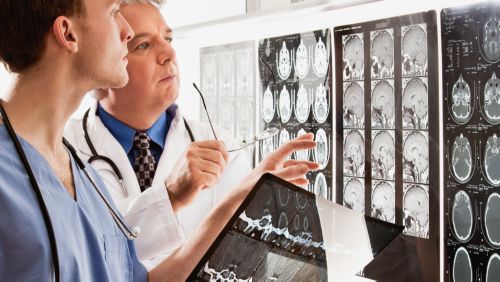St. Jude Family of Websites
Explore our cutting edge research, world-class patient care, career opportunities and more.
St. Jude Children's Research Hospital Home

- Fundraising
St. Jude Family of Websites
Explore our cutting edge research, world-class patient care, career opportunities and more.
St. Jude Children's Research Hospital Home

- Fundraising
Zachary Wooten Lab
The Wooten group provides statistical support and machine-learning based methodological innovations for diagnosis and treatment planning.
About the group
The Wooten group is focused on the development of AI-based diagnosis and treatment planning tools for pediatric use. AI-aided diagnostic technology can significantly streamline clinical workflow and increase accessibility to care. However, significant technical advances are needed to produce robust, high-quality software that are standardized in performance across platforms and institutions. The Wooten group collaborates with the departments of Radiology and Radiation Oncology in developing image-based, AI-aided diagnostic software for treatment planning in pediatric oncology. Concurrently, the group also works with investigators from the Department of Psychology and Biobehavioral Sciences on various projects assessing the longitudinal health outcomes of patients with childhood catastrophic diseases.
Research summary
The longitudinal research focus of the Wooten group is the development of deep-learning tools to aid medical diagnosis and treatment planning. Machine learning or artificial intelligence (AI) is increasingly used in imaging-based medical diagnosis due to their pattern recognition capabilities. AI-aided diagnosis and treatment planning have the potential to significantly lessen clinician workload, reduce human error, and increase accessibility to care. However, current AI-based diagnostic tools are limited in quality control. Furthermore, available technology tends to focus on adult patients and diseases. There is therefore a lack of robust AI-based diagnosis and treatment planning tools for pediatric use. One aspect of Dr. Wooten’s work is toward the improvement and development of imaging-based AI diagnosis software for the pediatric setting.
Currently, Dr. Wooten’s group collaborates with the Department of Radiation Oncology on the development of AI tools for automated organ segmentation in pediatric radiation therapy. Additionally, other collaborative projects with faculty from the Department of Radiology are geared to examine the interpretability and failure modes of clinical AI systems, with the goal of identifying when and why these tools underperform in practice.
Furthermore, the Wooten group provides biostatistical support for a vast array of neurocognitive studies in collaboration with the Department of Psychology and Biobehavioral Sciences. Many of these projects involve the analysis of longitudinal health outcomes from data repositories such as the Sickle Cell Clinical Research and Intervention Program (SCCRIP) and St. Jude LIFE.
Software
Location-smoothed Bayesian Adaptive Regression Tree (lsBART):
lsBART is an AI-based quality assurance software that integrates with existing organ contouring technology for use with CT and MRI images to segment organs and tissues. lsBART uses shape statistics and smoothing algorithms to create 3D models of whole organs and structures, adjusting for varying image qualities and modalities. In this way, lsBART can pinpoint potential AI-generated contouring errors by flagging individual images that require human supervision.

1.a. Digital image of artificial intelligence human brain.
III. Function of spinal interneurons in motor control
The ventral interneurons we study are known to provide direct synaptic input to motor neurons. By virtue of their proximity to motor output, the target specific spinal interneuron subsets, in combination with electromyography and high-speed imaging and kinematic analysis, we can study how ablation or activation of neuronal subsets perturbs fundamental aspects of limb movement, such as flexion/extension.
Publications
This is a brief highlight showing the publications on the page.
The team
This is a brief hightlight showing the diversity and people within this specific lab. Each of these profiles could link to the bio section if applicable.
See All Team Members >
Contact us
We’d love to hear from you. If you have any questions or inquiries please get in touch with us.
Postal Address
Jay Bikoff, PhD
Assistant Member, Developmental Neurobiology
Department of Developmental Neurobiology
MS 322, Room D2006C
St. Jude Children's Research Hospital
Memphis, TN, 38105-3678 USA
Follow Us

Memphis, TN, 38105-3678 USA GET DIRECTIONS